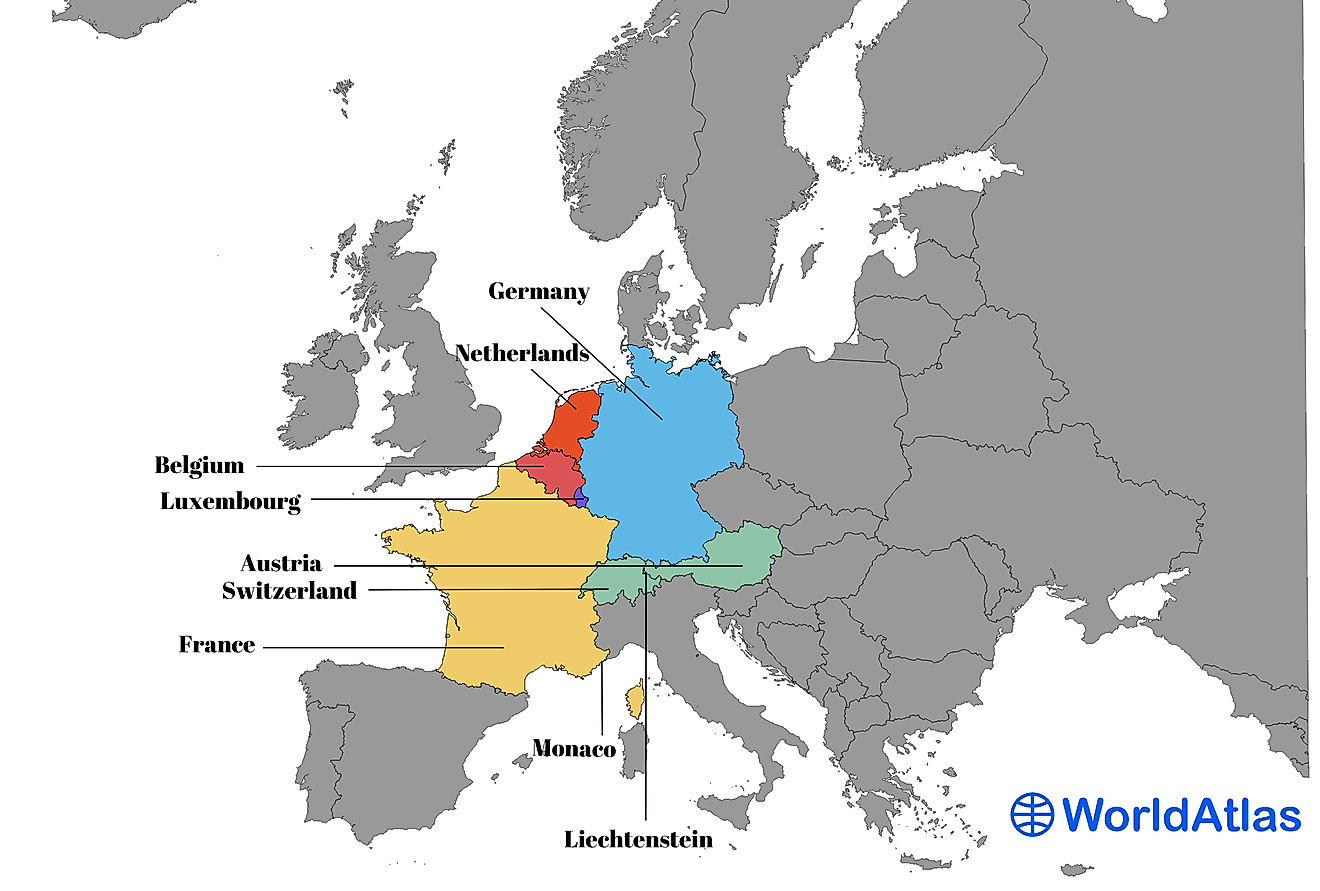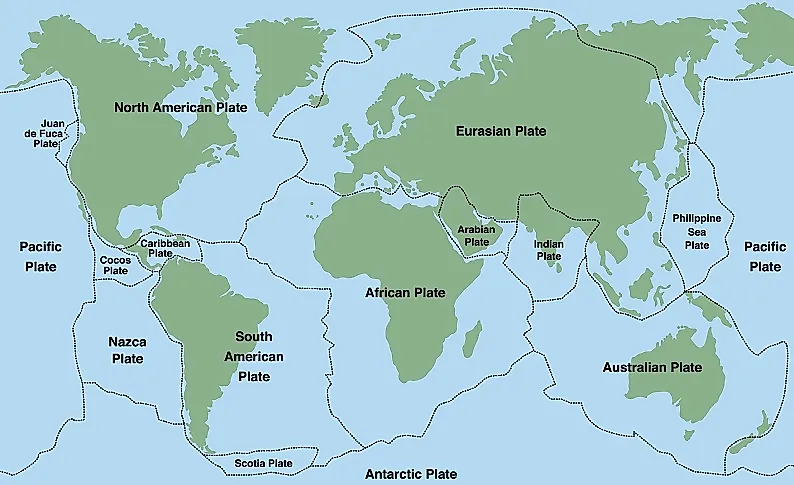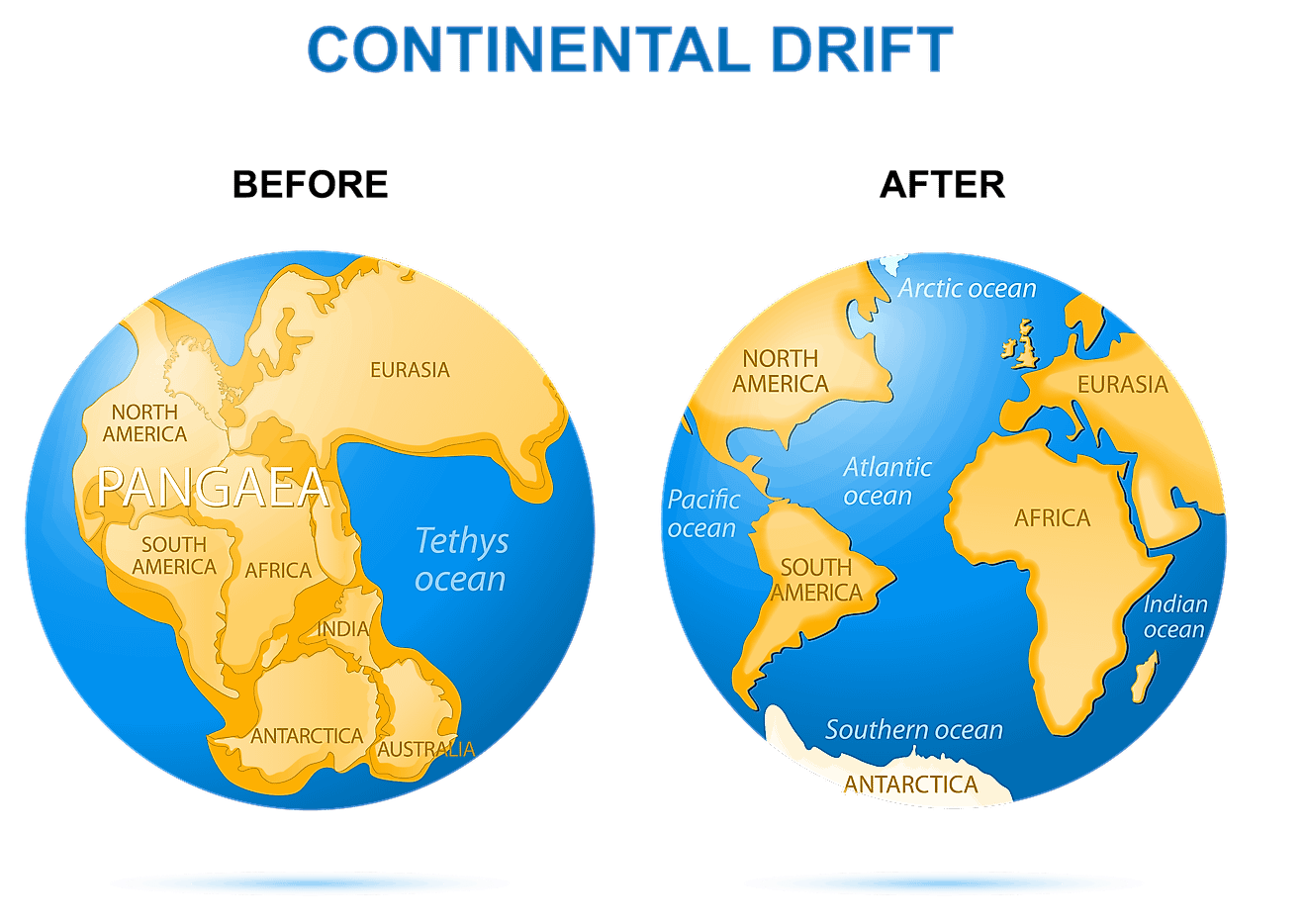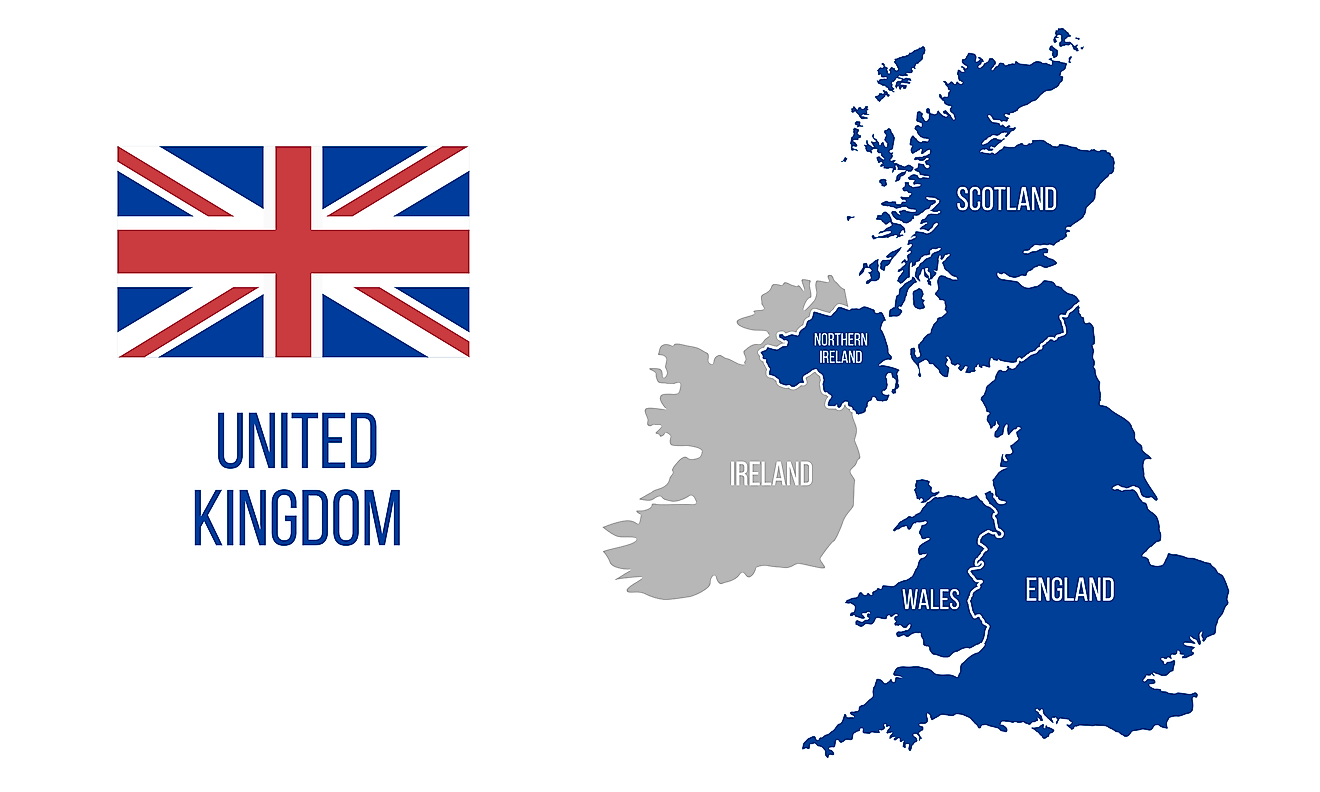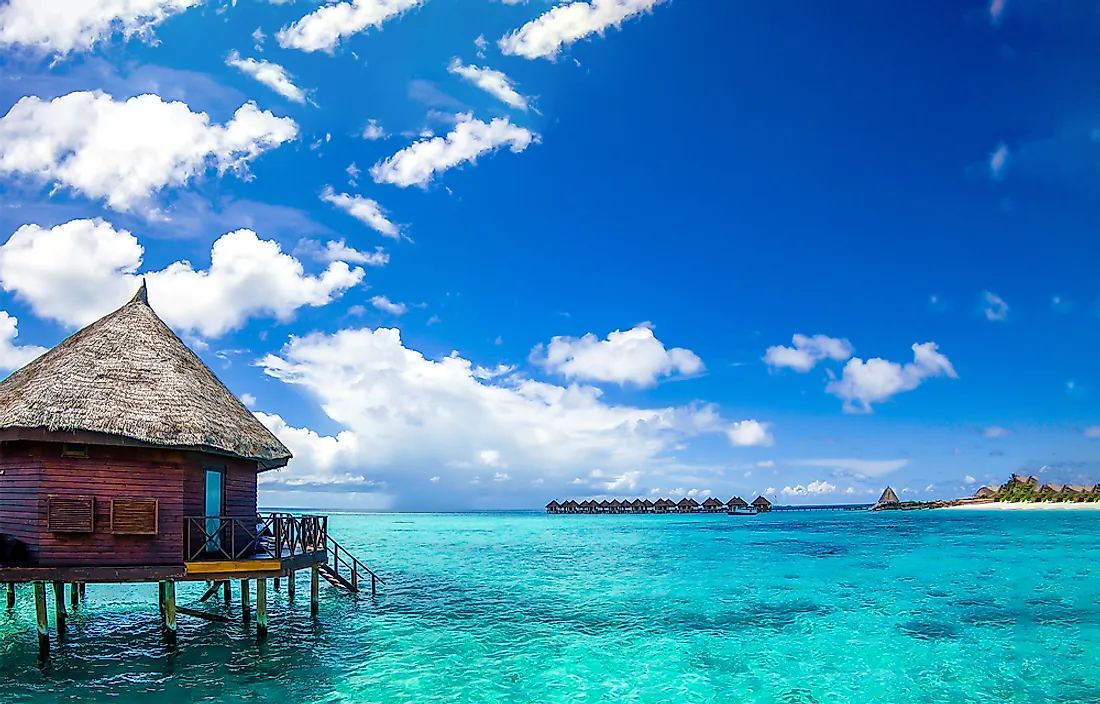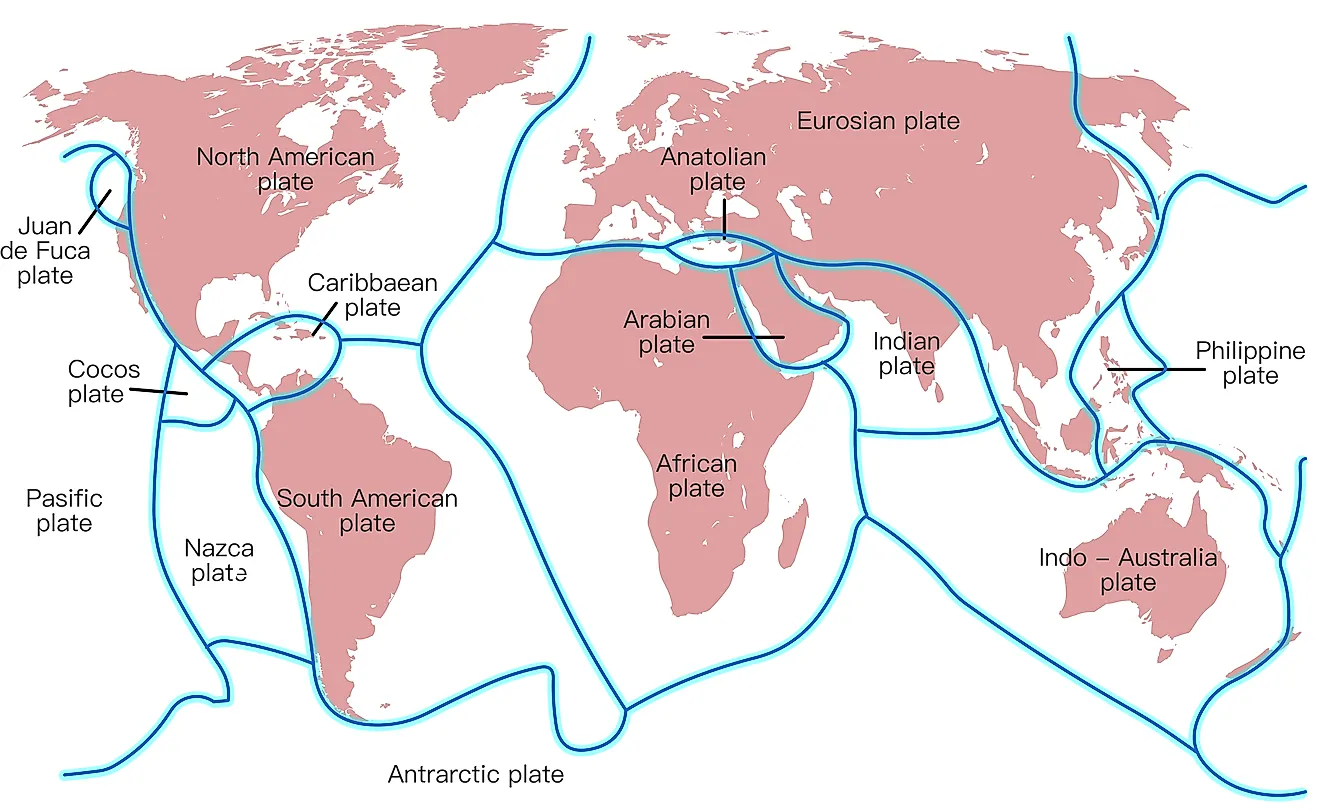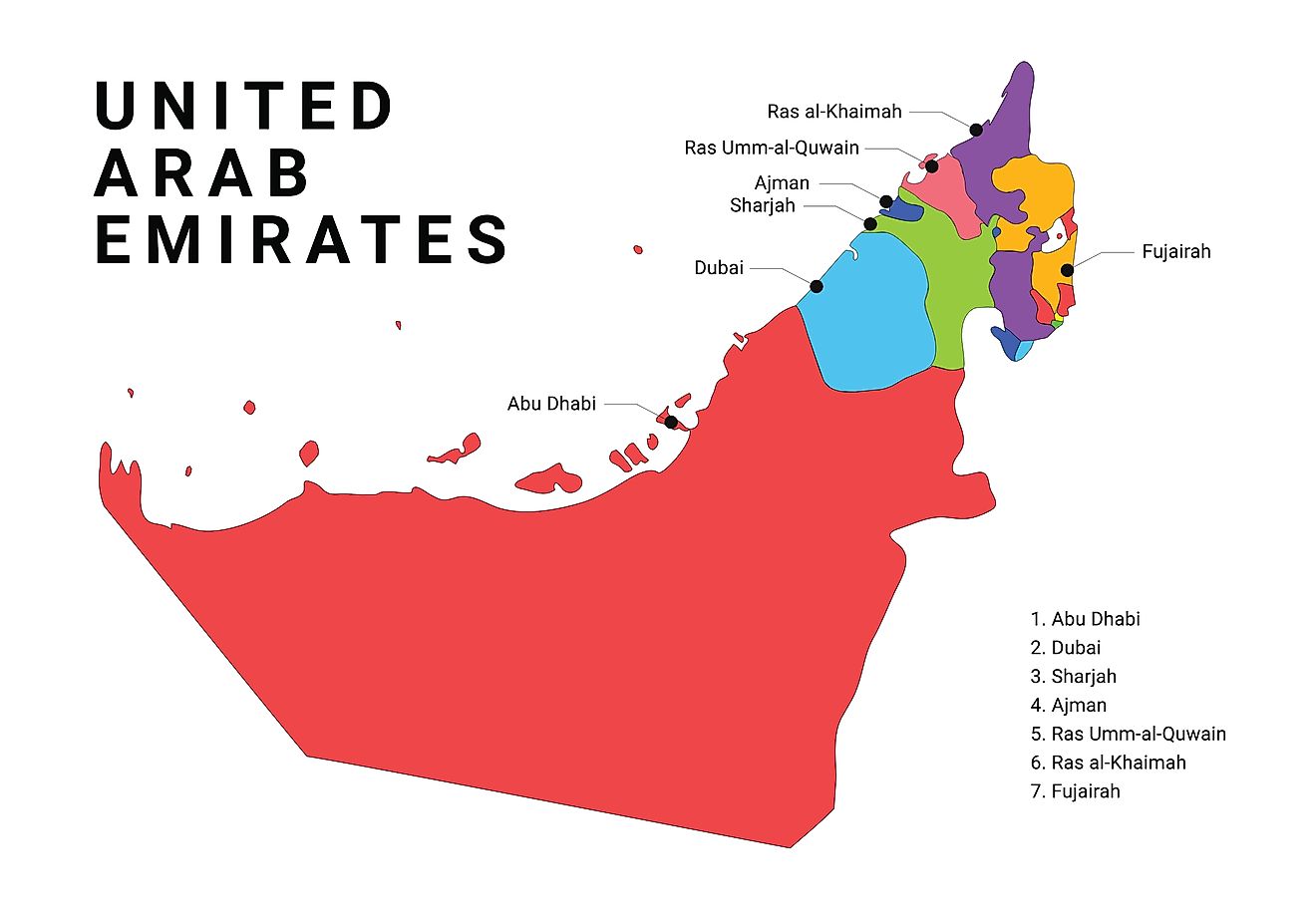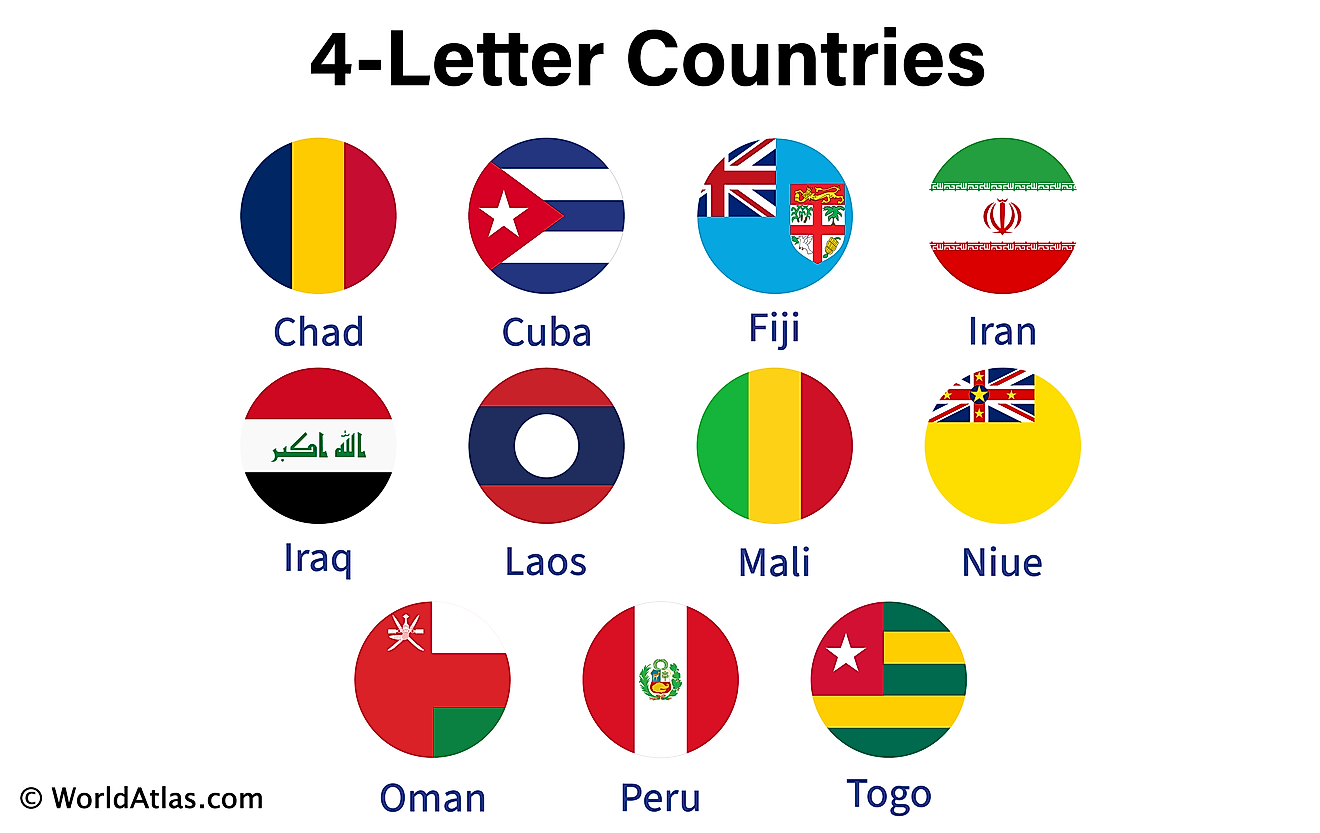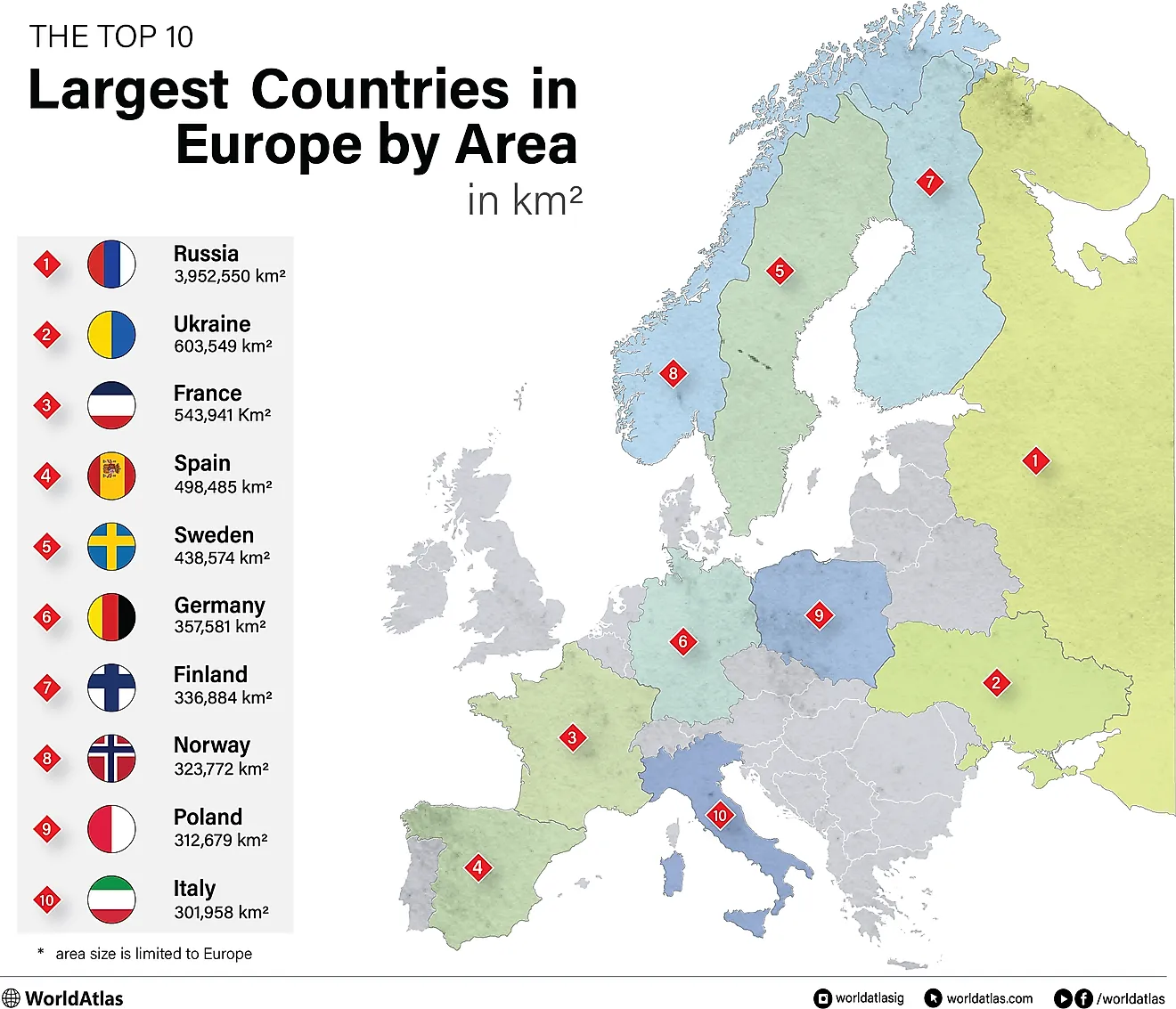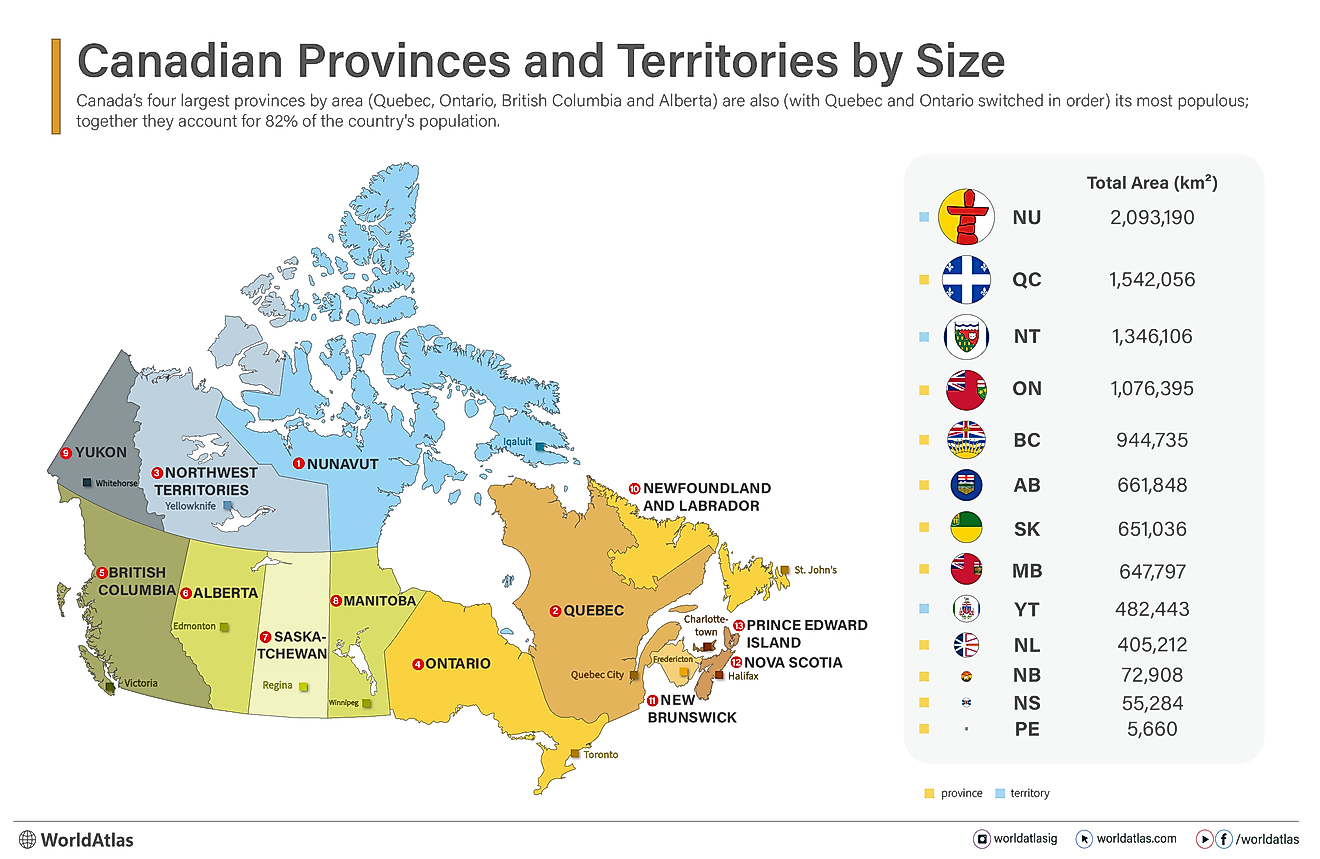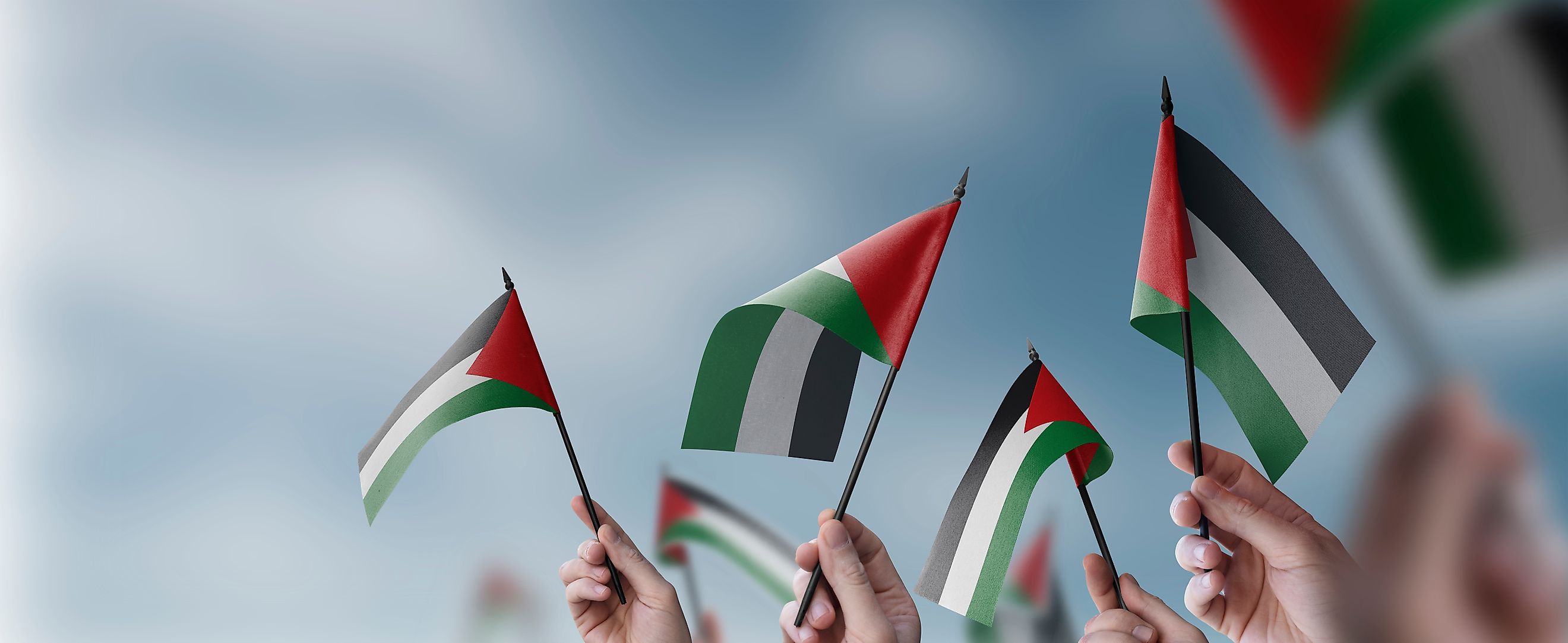
Which Countries Recognize Palestine?
The question of Palestine’s statehood is one of the most contested international topics, dating back to the 20th century. The list of countries that recognize Palestine as a country continues to evolve, particularly with the recent reignited conflict between Palestine and Israel. Although the United Nations granted Palestine “non-member observer state” status, UN members have not unanimously agreed on its status as a country. As of June 2024, 145 of the 193 UN members, or roughly 75%, have recognized Palestine as a sovereign state, many of the countries being African, Asian, and Latin American.
Palestine’s Initial Declaration & Early Recognitions
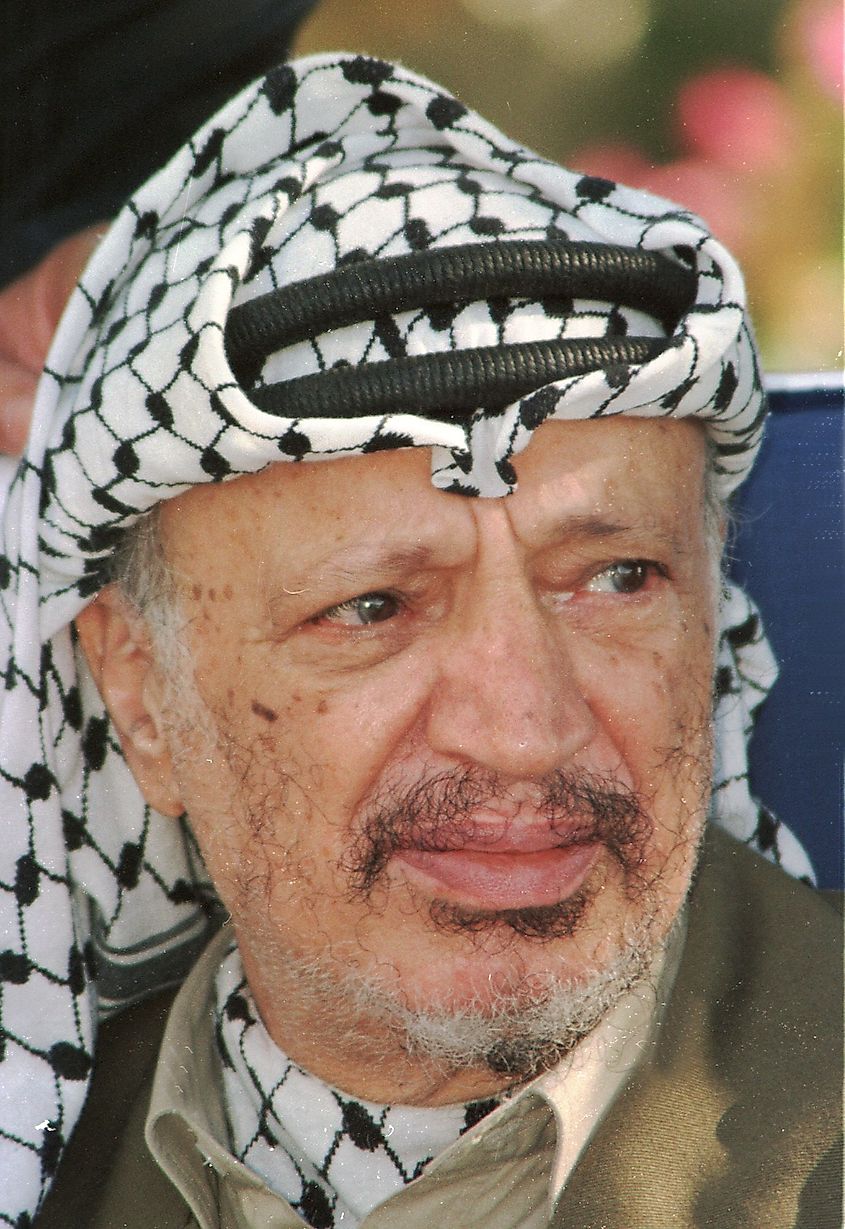
On November 15th, 1988, Palestinian leader Yasser Arafat proclaimed Palestine an independent state, declaring Jerusalem as the capital, during the Palestine National Council meeting in Algiers. Shortly after, Algeria would become the first country in the world to recognize Palestine as an independent state. The Arab League also nearly immediately recognized Palestine’s state status that day, with many Arab-league countries confirming recognition as well, including Bahrain, Iraq, Kuwait, Libya, Morocco, and Yemen.
In 1988 alone, a total of 80 countries officially recognized Palestine, including an additional number of Arab states, most African countries, several Eastern and Central European states, and various communist-affiliated countries such as China, the Soviet Union, and Cuba.
Oslo Accords In The 1990s
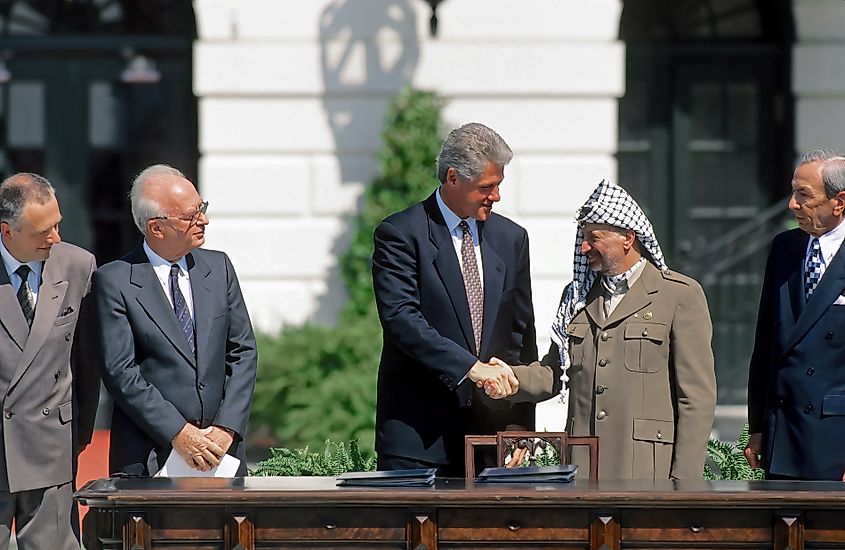
During the 1990s, the Palestine Liberation Organization and Israel attempted peace through a number of agreements known as the Oslo Accords, attracting international attention. A wave of countries supported Palestine’s state status during this same period, including the Asian countries of Tajikistan, Uzbekistan, and Kyrgyzstan, as well as South Africa, Malawi, and Papua New Guinea, with the Papua New Guinean prime minister Julius Chan stating in a letter to the United Nations that they wished to establish diplomatic relations with Palestine due to the “encouraging peace process between Israel and the State of Palestine.”
Reignited Attention In The Early 2000s
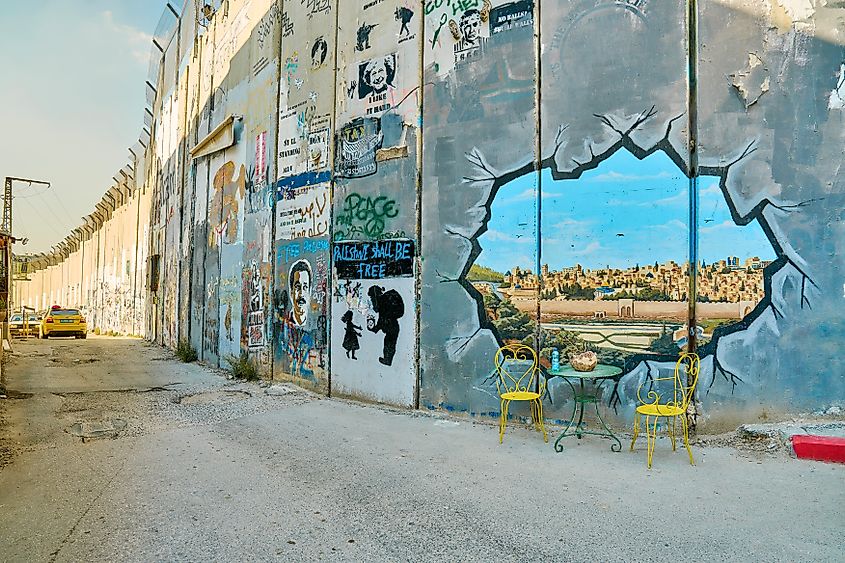
At the start of the 21st century, Palestine and Israel could not reach an agreement at the 2000 Camp David Summit, marking the breakdown of the Oslo II Accords. This lack of success, followed by the violent Second Intifada (Second Uprising), which included protests, riots, attacks, and numerous civilian and combatant casualties, drew international attention to Palestine once again. Between 2004 and 2006, East Timor (Timor-Leste), Paraguay, Montenegro, Costa Rica, Lebanon, and the Ivory Coast (Cote D'Ivoire) officially recognized Palestine’s independence. Paraguay, for instance, emphasized its support for collaboration efforts between Israel and Palestine and condemned the Israeli occupation of Palestinian territories in its letter of recognition, thus affirming Palestine’s statehood.
A Wave of Recognition in Latin America and the Caribbean
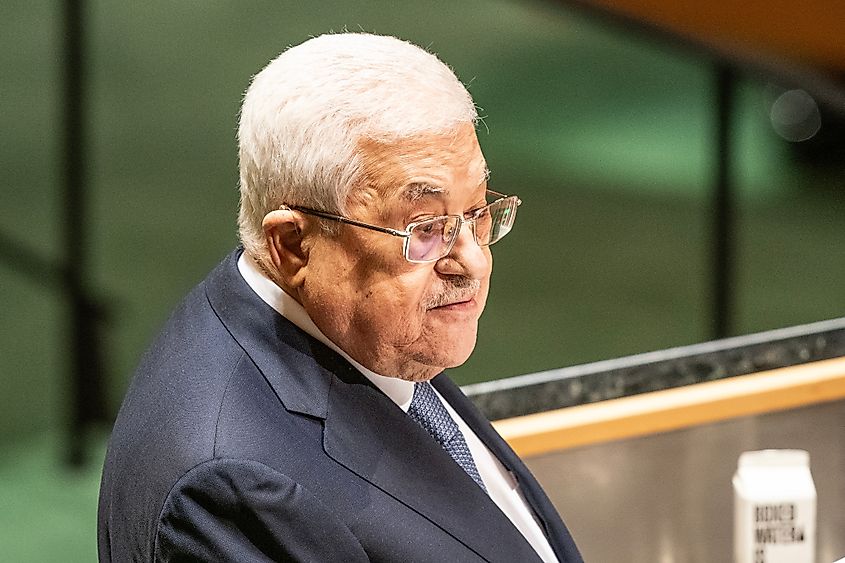
During the 2008-2009 Gaza War, Venezuela severed diplomatic ties with Israel in protest of its military actions in the Gaza Strip. Soon after, in April 2009, Venezuela recognized Palestine’s independence. Over the next two years, a wave of Latin American countries followed suit, including the Dominican Republic, Brazil, Argentina, Bolivia, Ecuador, Chile, Peru, Uruguay, and Honduras. This surge in recognition was driven by various factors, notably the influence of Palestinian communities, who exerted a fair amount of social and economic influence throughout the Latin American region.
Additionally, Palestinian diplomatic efforts played a key role, with the Palestinian Authority actively seeking regional support. The Palestinian ambassador in Santiago, Chile, for example, confirmed that the Palestinian state had been working to seek support in the region. These factors, along with a broader Latin American desire to have an independent stance in international politics, contributed to this wave of recognition that continued until around 2011.
A wave of Caribbean countries followed the same year, including Saint Vincent and the Grenadines, Dominica, Antigua and Barbuda, and Grenada, many of the countries expressing concerns about imperialism and the potential for a nuclear and environmental disaster.
International Organization Recognition in the 2010s
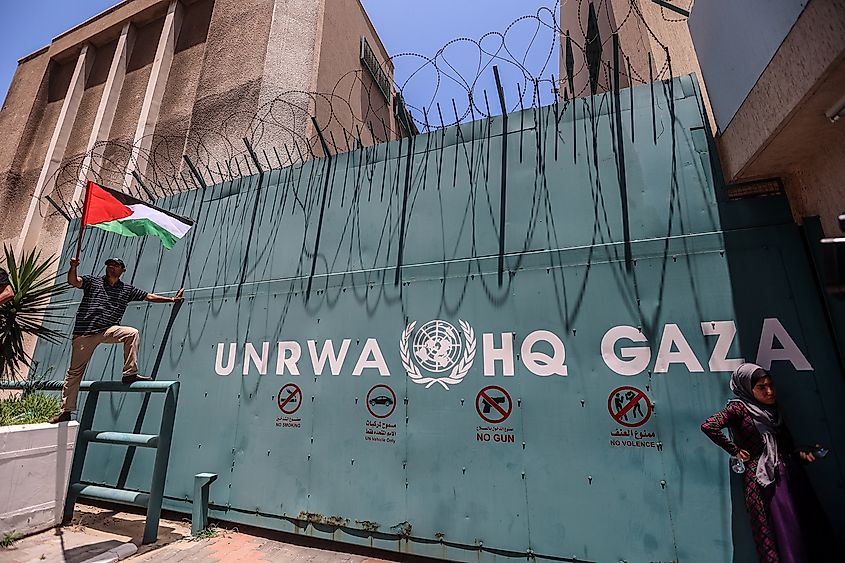
On September 23, 2011, Palestinian President Mahmoud Abbas formally requested Palestine's membership in the United Nations. The following year, in September 2012, they attempted to upgrade to a “non-member observer state," approved in November with a 138-to-9 vote in favor. The month after, the UN Chief of Protocol Yeocheol Yoon announced that the “State of Palestine” should be used on all official UN documents. Several years later, in September 2015, the United Nations in New York raised the Palestinian Flag for the first time. Palestine would also become an official state party of the International Criminal Court in 2015, marking a more comprehensive range of international organization recognition.
Recent Recognitions: 2014 Through Present
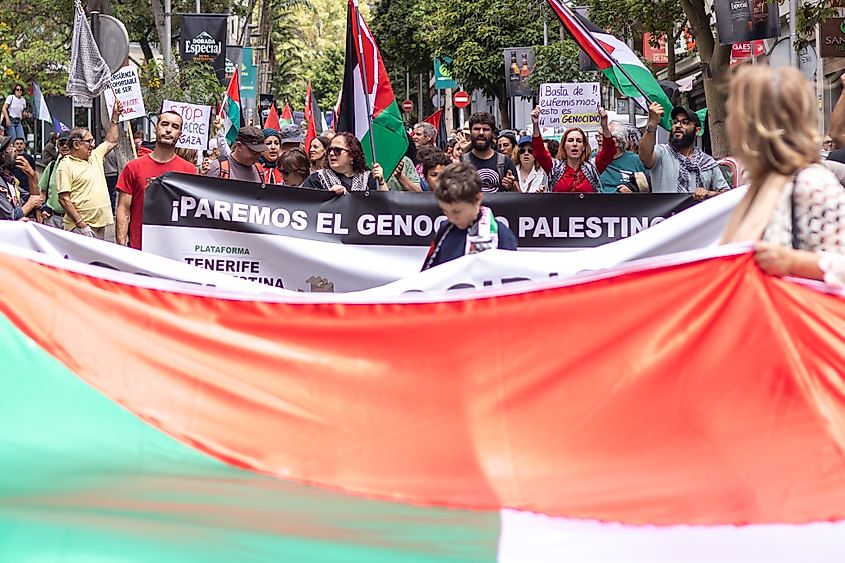
With a substantial Palestinian community of approximately 75,000 to 80,000 residents, Sweden notably recognized Palestine’s independence in 2014, becoming the first Western European Union member to do so. However, before Sweden’s recognition, several other European Union member states, including Bulgaria, Cyprus, the Czech Republic, Hungary, Poland, and Romania, had already acknowledged Palestine’s statehood. While the countries of Saint Lucia, Colombia, and Saint Kitts and Nevis also recognized Palestine in the following five years, the next big wave did not occur until 2024 due to the reignition of violence from the Israel-Hamas war. Ireland, Norway, Spain, and Slovenia significantly recognized the state of Palestine in May and June 2024, potentially creating momentum for more EU countries to follow.
Countries That Have Withheld Recognition
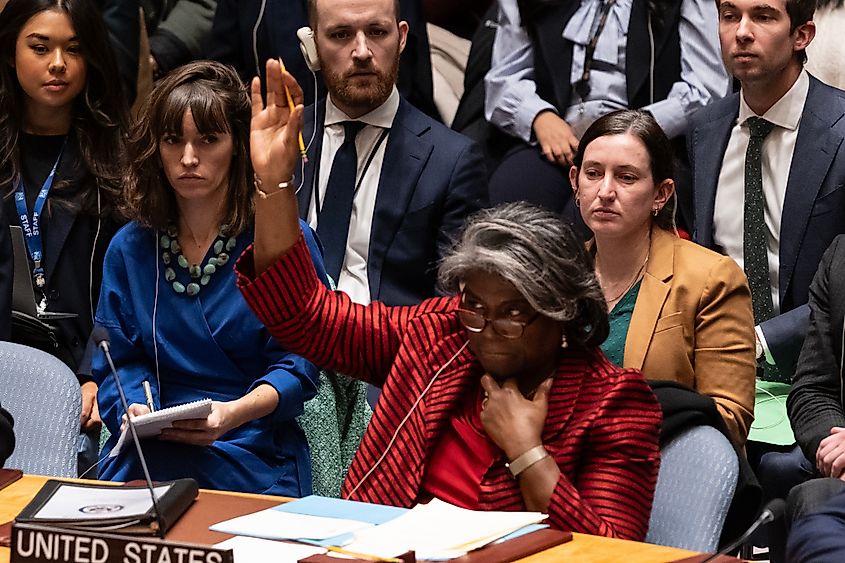
As of June 2024, 48 countries have not recognized Palestine's statehood, with notable holdouts including the United States, Australia, Canada, France, Germany, Greece, Japan, and the United Kingdom. Many of these countries take the stance that a Palestinian country is conditional upon peaceful negotiations between Palestine and Israel. As US president, for example, Barack Obama stated that the United States would veto any United Nations Security Council action to recognize Palestine's statehood without a mutual agreement between Israel and Palestine, a stance upheld by subsequent US presidents. As one of only five countries in the UN with veto power, the United States' position remains a significant obstacle for Palestine.
Although Palestine originally declared its independence nearly four decades ago in 1988, it has faced many challenges in receiving unanimous recognition from the United Nations members. Continual conflict with Israel and failure to reach a mutual, peaceful agreement has resulted in ongoing dissent from certain countries, particularly North American and Western European powers, signifying an uncertain timeline ahead.
Countries That Recognize Palestine By Date
| Name | Date of recognition |
|---|---|
| Algeria | November 15, 1988 |
| Bahrain | November 15, 1988 |
| Indonesia | November 15, 1988 |
| Iraq | November 15, 1988 |
| Kuwait | November 15, 1988 |
| Libya | November 15, 1988 |
| Malaysia | November 15, 1988 |
| Mauritania | November 15, 1988 |
| Morocco | November 15, 1988 |
| Somalia | November 15, 1988 |
| Tunisia | November 15, 1988 |
| Turkey | November 15, 1988 |
| Yemen | November 15, 1988 |
| Afghanistan | November 16, 1988 |
| Bangladesh | November 16, 1988 |
| Cuba | November 16, 1988 |
| Jordan | November 16, 1988 |
| Madagascar | November 16, 1988 |
| Nicaragua | November 16, 1988 |
| Pakistan | November 16, 1988 |
| Qatar | November 16, 1988 |
| Saudi Arabia | November 16, 1988 |
| United Arab Emirates | November 16, 1988 |
| Serbia | November 16, 1988 |
| Zambia | November 16, 1988 |
| Albania | November 17, 1988 |
| Brunei | November 17, 1988 |
| Djibouti | November 17, 1988 |
| Mauritius | November 17, 1988 |
| Sudan | November 17, 1988 |
| Cyprus | November 18, 1988 |
| Slovakia | November 18, 1988 |
| Egypt | November 18, 1988 |
| The Gambia | November 18, 1988 |
| India | November 18, 1988 |
| Nigeria | November 18, 1988 |
| Seychelles | November 18, 1988 |
| Sri Lanka | November 18, 1988 |
| Namibia | November 19, 1988 |
| Russia | November 19, 1988 |
| Belarus | November 19, 1988 |
| Ukraine | November 19, 1988 |
| Vietnam | November 19, 1988 |
| People's Republic of China | November 20, 1988 |
| Burkina Faso | November 21, 1988 |
| Comoros | November 21, 1988 |
| Guinea | November 21, 1988 |
| Guinea-Bissau | November 21, 1988 |
| Cambodia | November 21, 1988 |
| Mali | November 21, 1988 |
| Mongolia | November 22, 1988 |
| Senegal | November 22, 1988 |
| Hungary | November 23, 1988 |
| Cape Verde | November 24, 1988 |
| North Korea | November 24, 1988 |
| Niger | November 24, 1988 |
| Romania | November 24, 1988 |
| Tanzania | November 24, 1988 |
| Bulgaria | November 25, 1988 |
| Maldives | November 28, 1988 |
| Ghana | November 29, 1988 |
| Togo | November 29, 1988 |
| Zimbabwe | November 29, 1988 |
| Chad | December 1, 1988 |
| Laos | December 2, 1988 |
| Sierra Leone | December 3, 1988 |
| Uganda | December 3, 1988 |
| Republic of the Congo | December 5, 1988 |
| Angola | December 6, 1988 |
| Mozambique | December 8, 1988 |
| São Tomé and Príncipe | December 10, 1988 |
| Gabon | December 12, 1988 |
| Oman | December 13, 1988 |
| Poland | December 14, 1988 |
| Democratic Republic of the Congo | December 18, 1988 |
| Botswana | December 19, 1988 |
| Nepal | December 19, 1988 |
| Burundi | December 22, 1988 |
| Central African Republic | December 23, 1988 |
| Bhutan | December 25, 1988 |
| Rwanda | January 2, 1989 |
| Ethiopia | February 4, 1989 |
| Iran | February 4, 1989 |
| Benin | May 12, 1989 |
| Kenya | May 12, 1989 |
| Equatorial Guinea | May 1, 1989 |
| Vanuatu | August 21, 1989 |
| Philippines | September 4, 1989 |
| Eswatini | July 1, 1991 |
| Kazakhstan | April 6, 1992 |
| Azerbaijan | April 15, 1992 |
| Turkmenistan | April 17, 1992 |
| Georgia | April 25, 1992 |
| Bosnia and Herzegovina | May 27, 1992 |
| Tajikistan | April 2, 1994 |
| Uzbekistan | September 25, 1994 |
| Papua New Guinea | October 4, 1994 |
| South Africa | February 15, 1995 |
| Kyrgyzstan | November 1, 1995 |
| Malawi | October 23, 1998 |
| East Timor | March 1, 2004 |
| Paraguay | March 25, 2005 |
| Montenegro | July 24, 2006 |
| Costa Rica | February 5, 2008 |
| Lebanon | November 30, 2008 |
| Ivory Coast | December 1, 2008 |
| Venezuela | April 27, 2009 |
| Dominican Republic | July 15, 2009 |
| Brazil | December 1, 2010 |
| Argentina | December 6, 2010 |
| Bolivia | December 17, 2010 |
| Ecuador | December 24, 2010 |
| Chile | January 7, 2011 |
| Guyana | January 13, 2011 |
| Peru | January 24, 2011 |
| Suriname | January 26, 2011 |
| Uruguay | March 15, 2011 |
| Lesotho | May 3, 2011 |
| South Sudan | July 14, 2011 |
| Syria | July 18, 2011 |
| Liberia | July 19, 2011 |
| El Salvador | August 25, 2011 |
| Honduras | August 26, 2011 |
| Saint Vincent and the Grenadines | August 29, 2011 |
| Belize | September 9, 2011 |
| Dominica | September 19, 2011 |
| Antigua and Barbuda | September 22, 2011 |
| Grenada | September 25, 2011 |
| Iceland | December 15, 2011 |
| Thailand | January 18, 2012 |
| Guatemala | April 9, 2013 |
| Haiti | September 27, 2013 |
| Sweden | October 30, 2014 |
| Saint Lucia | September 14, 2015 |
| Colombia | August 3, 2018 |
| Saint Kitts and Nevis | July 29, 2019 |
| Barbados | April 19, 2024 |
| Jamaica | April 22, 2024 |
| Trinidad and Tobago | May 2, 2024 |
| The Bahamas | May 7, 2024 |
| Ireland | May 28, 2024 |
| Norway | May 28, 2024 |
| Spain | May 28, 2024 |
| Slovenia | June 4, 2024 |
| Armenia | June 21, 2024 |

